College of Human Sciences
Tell your own stories
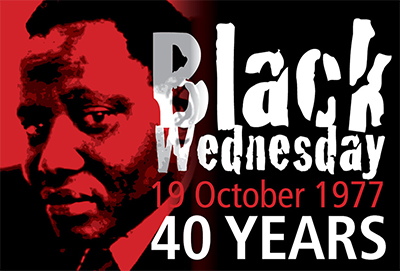 This year the tone of the Percy Qoboza Memorial Lecture was unlike any of the other previous lectures. While still informative and educational, this year’s celebration of Qoboza, a true South African hero, was a personal reflection on who he was through the eyes of his son, Vusi Qoboza.
This year the tone of the Percy Qoboza Memorial Lecture was unlike any of the other previous lectures. While still informative and educational, this year’s celebration of Qoboza, a true South African hero, was a personal reflection on who he was through the eyes of his son, Vusi Qoboza.
Backgrounded by a black and white photo of his mother, himself, and his two siblings taken on the day his father was arrested, the son paid an emotional tribute to his father. As Vusi outlined his concerns for the current challenges facing South Africa, he said, “I was very close to my father,” and continued by explaining the importance of telling our own stories, something Percy was very passionate about.
He described his dad as brave, a pathfinder, a trailblazer, and a person who had a great love for his people and country. Urging people to take on these characteristics, he said, “We need to be vigilant, we need to protect our democracy; it was hard fought.
“We face many challenges in South Africa today, corruption, Marikana; we have a controversial president. We’ve had 12 cabinet reshuffles in seven years, two in 2017 alone; our country is unstable. We need to addresses these challenges in honour of leaders like Percy.”
He added that in order to do this, we need civil society activists who will push government to work for them, to do what the people want. “We need a leadership that is inspired, bold and competent; our challenge is our current sitting president.”
Vusi concluded by saying that his father loved South Africa and if we were to effect change, we had to do it with love and not self-gain. “It has to be for the betterment of our society,” he said.
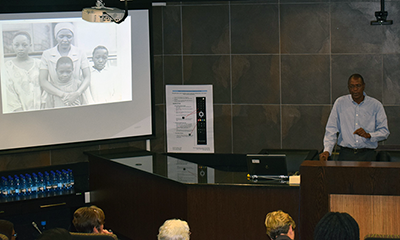
Vusi Qoboza, son of Percy Qoboza delivered the keynote address at the annual Percy Qoboza Memorial Lecture hosted by the National Press Club and Unisa’s Department of Communication Science.
Following the lecture, jointly hosted by the National Press Club and Unisa’s Department of Communication Science, was a panel discussion. Panel members included Vusi, Ntando Makhubu (News Editor at the Pretoria News) and Tanya de Vente-Bijker (freelance journalist and radio presenter).
De Vente-Bijker posed an important question as to whether those working in the media industry defended media freedom and kept the legacy of Percy alive. Makhubu said there were many ways to be an activist and that it was not about going into the streets, toyi-toying, breaking and destroying. “We don’t make wrong things right by doing wrong things.” She added that journalists and all South Africans should strive every day to be like Percy, especially journalists, who need to be the eyes, ears and consciousness of society.
Prof Danie du Plessis from Unisa’s Department of Communication Science in the College of Human Sciences also shared a few words. He said the lecture was meant to celebrate Percy Qoboza, a champion of South Africa who became a role model to the industry.
He explained how on 19 October 1977, the apartheid regime declared illegal 19 Black Consciousness organisations, banned two newspapers, and detained scores of activists. The World newspaper editor Percy and other journalists were subsequently arrested and jailed. This day is now commemorated in South Africa as Black Wednesday and is also marked as National Press Freedom Day.
“It’s been 40 years since the attempt to silence Percy and his colleagues. Today, we honour his legacy. His voice is not silenced; even in his death, he speaks to us today in the form of his son,” said Du Plessis. He added that, apart from honouring one of South Africa’s most renowned newspaper editors, this annual lecture helps strengthen the pillars of democracy—freedom of speech and freedom of the media—to ensure that Black Wednesday never happens again.
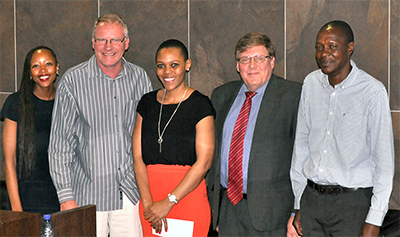
The final part of the lecture was the awarding of the Patrick Hlahla Bursary to a deserving Unisa communication sciences student. Willem van der Putte (The Star and deputy chair National Press Club) said the bursary honours Hlahla’s commitment to mentoring and nurturing up-and-coming journalists. Like Qoboza, Hlahla, former chairperson of the National Press Club and a senior reporter at the Pretoria News, was a consummate journalist who upheld the highest standards of reporting and integrity in his work. Vusi added that his dad would have been pleased that this opportunity is granted to a student to help them complete their studies without financial burden. This year’s bursary was awarded to Theresa Magubane. Having never won anything, she was stunned to be named the winner and said that she would work hard to continue the legacy of Percy and Hlahla.
*By Rivonia Naidu-Hoffmeester
Publish date: 2017-10-20 00:00:00.0


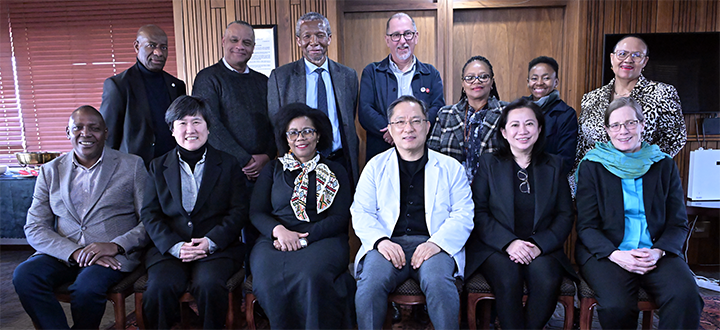 Unisa wins bid to host IAMS General Assembly
Unisa wins bid to host IAMS General Assembly
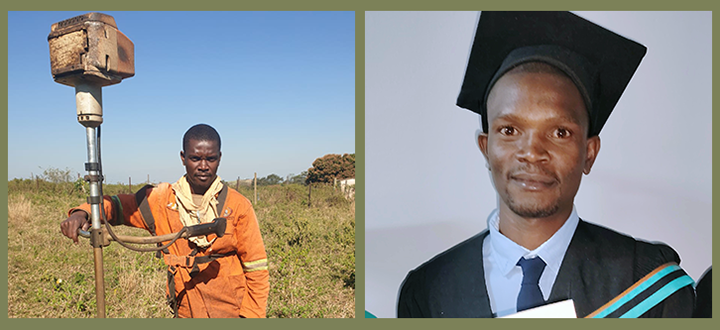 Cutting grass by day, pursuing Unisa studies by night
Cutting grass by day, pursuing Unisa studies by night
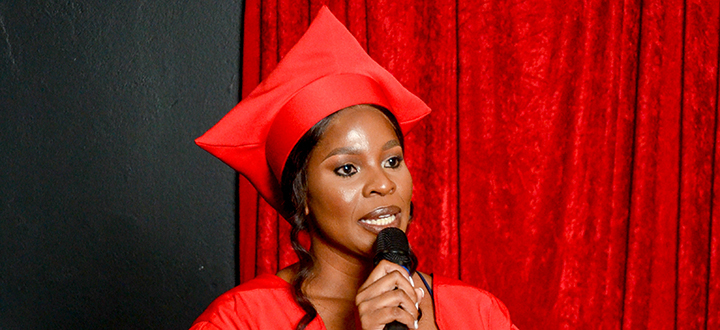 Unisan’s research set to improve accident records management through AI
Unisan’s research set to improve accident records management through AI
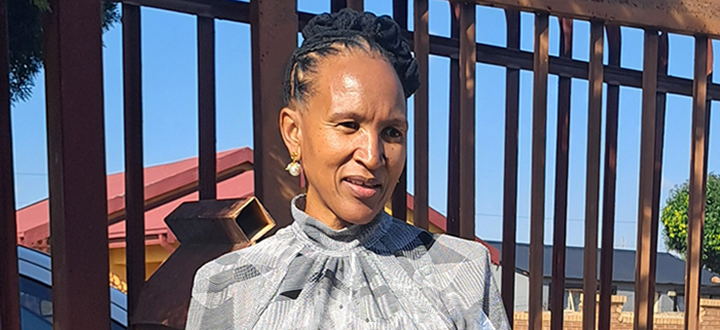 Koma e wetse: When tradition meets the harsh realities of modern livelihoods
Koma e wetse: When tradition meets the harsh realities of modern livelihoods
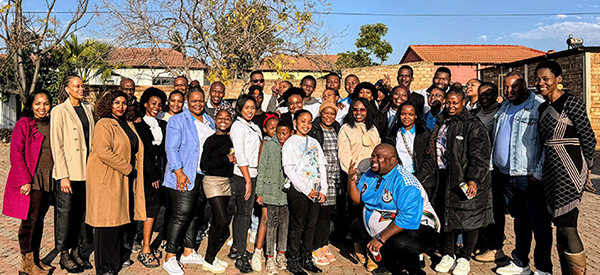 Imbizo inspires youth
Imbizo inspires youth